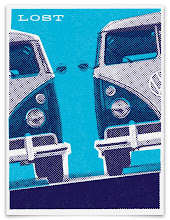I spent the weekend finishing Season 2 of Dexter, the story of the serial killer of serial killers. I really enjoy this show. Season 1 in particular had a wonderful over-arching plot. The strength of the show is the acting. All the actors, leads and supporting roles do a fantastic job of making you want to watch what is basically a bunch of very unappealing people -- a soulless killer, a neurotic, foul-mouthed cop still trying to win her dead father's approval, a power-hungry media-hungry boss, a woman who can't choose a good man just to name a few.
Now this show is not for everyone. It airs on Showtime and therefore has nudity, profanity, and a lot of scenes of the aftermath of violence. But I really like Dexter, and I look forward to Season 3 ending and being put on DVD so I can watch it.





